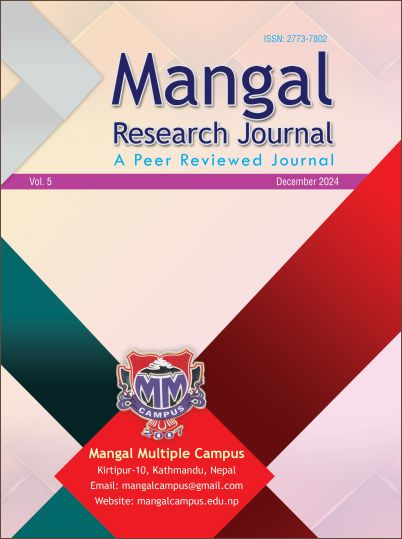Chhaupadi Practice in Chaukune Surkhet District through the Lens of Shamanism and Bandura's Social Learning Theory
DOI:
https://doi.org/10.3126/mrj.v5i01.73484Keywords:
Chhaupadi, equality, isolation, justice, shamanism, social learning theoryAbstract
through the lenses of Shamanism and Bandura's social learning theory. It aims to investigate the socio-cultural factors that perpetuate this practice by employing qualitative method. It also seeks to understand the traditional beliefs and taboos and learned behaviors in sustaining Chhaupadi. For these purposes data were collected from a diverse group of 18 participants, including females aged 15 to 72, In-charge and nurse of the health post, Dhamis (traditional healers), and community leaders selected purposively. A valid semi-structured interview guideline was employed to capture responses from the participants using audio recorder. The collected data were transcribed applying ELAN software and then analyzed thematically with Atlas.ti. The study revealed that Chhaupadi persists due to the interplay of spiritual beliefs, social norms and taboos, and learned behaviors from the society. Additionally, menstruation is often misinterpreted through religious and superstitious beliefs rather than understood as a natural and biological phenomenon. Better health education, communication, awareness campaigns, and other initiatives are vital approaches to alter the mindset and behavior of the community people, particularly women and traditional healers in order to properly manage menstrual health.




